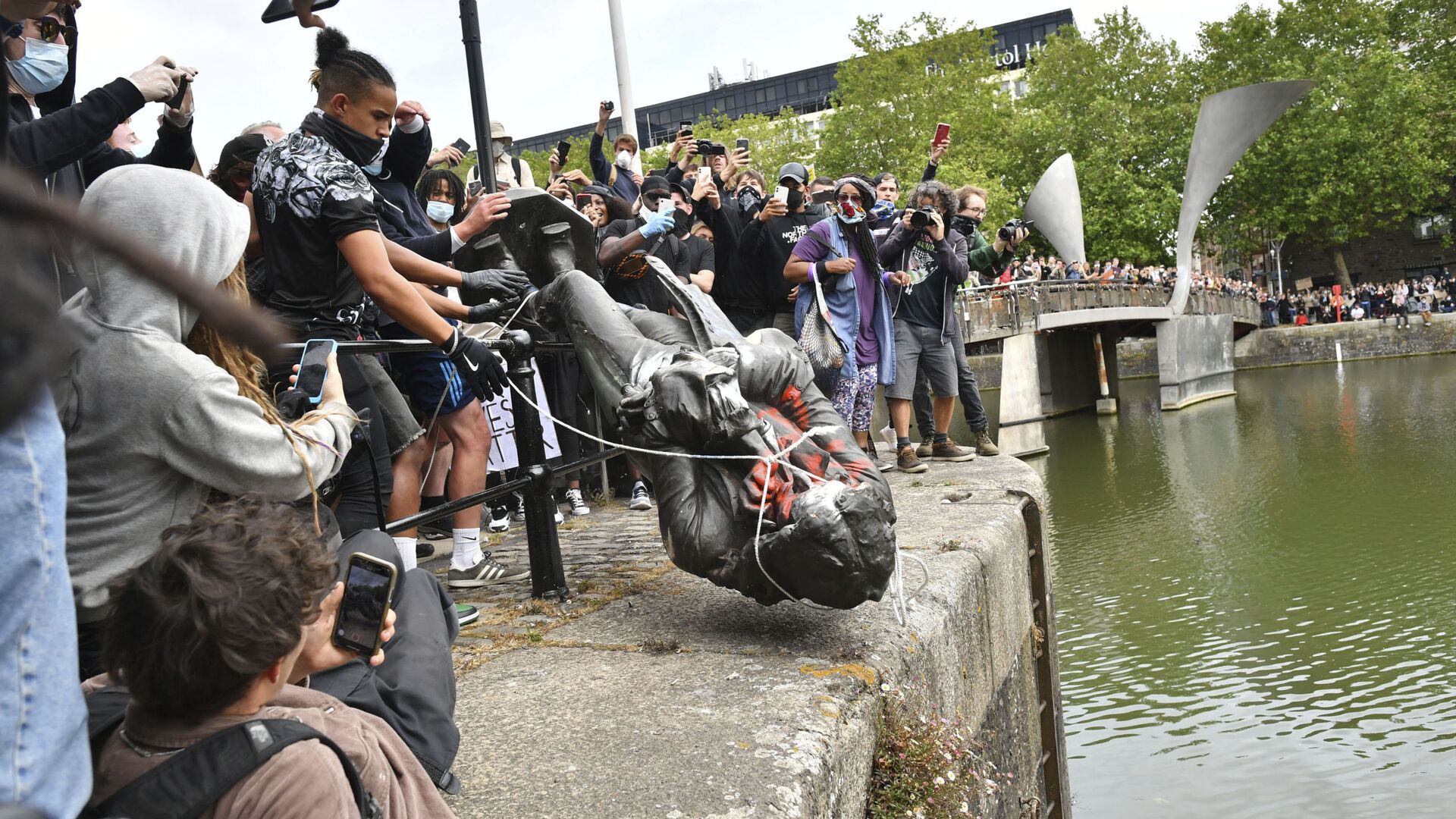UK MPs Slam Verdict in Colston Statue Case as 'Woke', Argue it Legitimises Vandalism

"I'm not privy to what was said in court, but if somebody topples a statue or any other structure that is criminal damage and one would expect people to be punished for doing that. It's a very strange decision. I hope the government will do everything in its power to make sure there's no room for people to commit criminal damage on the basis of some woke objective or other", Mr Bone said.
"We live in a democracy and if people are offended by a statue then they should use the local democratic process to have them removed and not mindless thuggish behaviour", Anderson said.
George Floyd Protests, Toppling of the Statue, and Trial
His death reignited the debate on racial injustice in the United States and sparked the biggest protests in the country since the assassination of famous civil rights activist Martin Luther King Jr. in 1968. Protests against racism then spread to other parts of the world and were held in Latin America, the Middle East, and Europe, including Germany, Spain, France, and Britain.
During one such demonstration in the United Kingdom protesters in Bristol, England, toppled and dumped in a harbour the statue of Edward Colston, an English merchant who was involved in the Atlantic slave trade. According to UK media outlets, over the course of his lifetime he enslaved 84,000 people, including children. Colston was also involved in philanthropy and donated to schools, organisations supporting the poor, and hospitals.
In 1895, a statue of him was installed in the centre of Bristol to commemorate his philanthropic works. Several decades later his slave-trading activities were detailed in a biography of his life and by the end of the 20th century there were calls to add a second plaque to the statue to state that Colston was also a slave trader.
In 2018, the Bristol City Council made a planning application to add the second plaque, but due to disagreements on the wording it was never installed.
The removal of the statue by the protesters divided the public and prompted a debate on whether statues commemorating individuals involved in the slave trade or deemed racist now should remain standing.
During the trial the prosecution insisted that Colston's slave trade past was "wholly irrelevant". QC William Hughes said the case was about "the rule of law" and the "cold hard facts".
Sage Willoughby, 22, one of the four defendants, said they didn't try to edit history, noting that others were "whitewashing" it by calling Colston a "virtuous man".
"We didn't change history, we rectified it. This is a victory for Bristol, this is a victory for racial equality, and it's a victory for anybody who wants to be on the right side of history", he said.
The statue of Edward Colston is currently in storage and awaits the results of a survey on what should be done with it.
